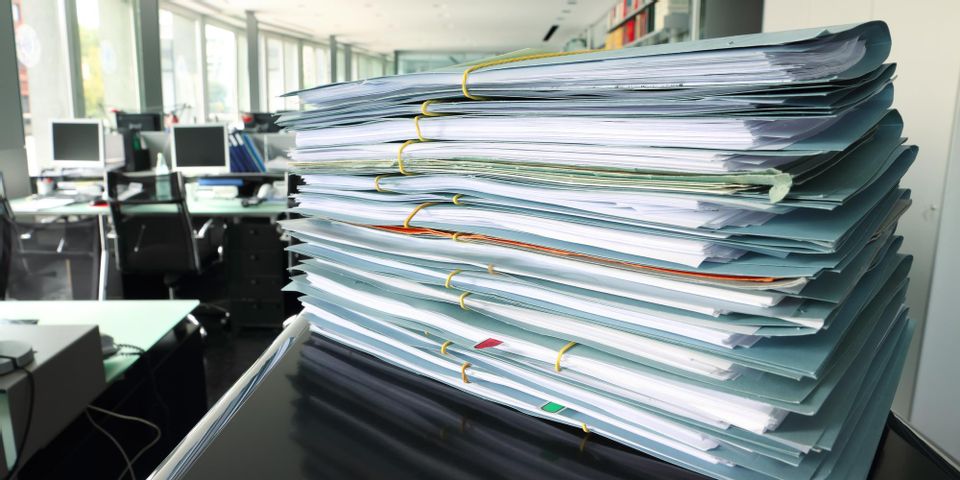3 Tips for Organizing Office Paperwork

Organizing paperwork is essential to office planning because you need to know where items are to act on them promptly. Filing cabinets and folders make sorting papers simple, but you need a system that’s reliable and easy to understand. Here are a few ways to keep your work space tidy and streamlined.
How to Organize Business Paperwork
1. Only Keep What You Need
Not everything needs to be filed and kept for posterity, and unnecessary papers generate clutter.
What you’re required to keep on file may vary according to your industry, but generally includes receipts and tax returns for the past seven years. Recycle papers that don’t contain sensitive information, and shred ones that do.
2. Label Clearly
 Labels that are too specific or too broad can make finding items in a cabinet difficult. With a label like “bills,” it could take you several minutes to find a specific invoice. If you use “bills from December 17th, 2018,” your filing system will become over-complicated and bloated.
Labels that are too specific or too broad can make finding items in a cabinet difficult. With a label like “bills,” it could take you several minutes to find a specific invoice. If you use “bills from December 17th, 2018,” your filing system will become over-complicated and bloated.
Instead, create a middle ground. For example, “bills paid in December 2018.” You can color-code different categories to help them stand out.
3. Make Sorting a Habit
Paperwork builds up when organization takes a backseat to daily tasks. Making filing a habit will reduce your workload in the long-term.
Start by sorting papers on your desk into piles like, “to do,” “to pay,” and “to file.” At the end of the week, place them in your cabinet or hand them to the right people. By having different piles for each type of need, you avoid larger, unmanageable stacks that result in lost papers.
For your next office planning initiative, contact Office Furniture Solutions for a wide selection of filing cabinets that make staying organized easy. Serving the St. Louis metropolitan area, they carry vertical and lateral filing cabinets, as well as personal towers. Visit their website to learn more about the office planning solutions they offer, or call (314) 567-5558 today to schedule a consultation.
About the Business
Have a question? Ask the experts!
Send your question

